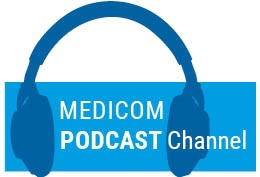Background

Dr Kelly provided some information on her background: ”I have worked for the Gluten Intolerance Group for over 25 years. My passion has always been working in a clinical practice providing care to people who have chronic conditions and to make sure that people have the opportunity to live healthy and good lives. Right now my full focus is strictly on working with people who deal with gluten sensitivity disorders, coeliac disease, and people who choose gluten-free diets for different reasons.
“Coeliac disease is genetic. It's autoimmune. If you carry the genes that will trigger coeliac disease, your risk of developing coeliac disease is increased. But not everyone who carries these genetic markers get coeliac disease. Gluten sensitivity, on the other hand, is a disease that we're finding out more about, but we still don't have diagnostic criteria for it. Unfortunately, it remains a rule-out disease at this point in time. There are also people who have wheat sensitivities, wheat allergies, as well as people who choose to eat gluten-free, but that is distinct from coeliac disease and NCGS.
What should physicians know about coeliac disease and NCGS?
Kelly: “It is important to recognise that patients with coeliac disease and NCGS may have similar symptoms. The challenge is that there are so many symptoms. There are more than hundred symptoms for coeliac disease alone, and gluten sensitivity has additional symptoms that make it hard to know which disease you're looking at. The symptoms may also mimic other conditions such as irritable bowel syndrome. It is, therefore, always important to consider listening to the patient. The patient is their best advocate.”
“In my particular situation, I spent 2 years going in and out of a primary doctor's office, trying to get a diagnosis. For example, I was given diagnosis of depression; I had iron deficiency anaemia; I was losing a massive amount of weight, and yet my primary physician wasn't listening to me. It's really important to listen to the patient's symptoms and run appropriate tests. Coeliac disease is among the hardest of the top-10 common diseases to diagnose. Today, there are good tests that could be run for coeliac disease. It is one of the most common gastrointestinal disorders and patients need to be seen by a gastrointestinal specialist in order to get a diagnosis.”
“I would also firmly suggest that nobody should be put on a gluten-free diet without a screening process and ruling out other conditions such as irritable bowel syndrome, Crohn's disease, or ulcerative colitis because that sets the patient up to have a harder time getting a diagnosis. Also, the only currently available treatment for coeliac disease is an adjusted diet. If not followed strictly, additional triggering diagnosis or additional health issues could arise.
What are some of the common barriers that patients experience beyond diagnosis?
Kelly: “’One of the most common barriers is that most physicians, especially in primary care, don't see enough coeliac patients to understand someone should get screened. Again, it mimics so many other conditions. Because of the heterogeneity and variability of the symptoms, it makes it very hard to diagnose. That's probably the biggest hurdle: physician understanding and knowledge of the condition.”
Can you tell us about the Gluten Intolerance Group?
Kelly: “The Gluten Intolerance Group is a nonprofit organisation in the United States and it will celebrate its 50 year anniversary next year. Our mission is to make life living gluten-free. We don't focus on research and finding a cure as much as we help to focus on how do I live with a gluten-free dietary need because that is my only treatment at this time to stay healthy. We focus on patient education and patient support.”
“We have a number of resources available, like toolkits that are specific for patients, physicians, nurses, and dieticians. For physicians, for instance, we have resources that includes the newest updated guidelines on coeliac disease that were just published [1].
“We also have a secondary arm where we look at food safety; we have a certification program for products to make sure that the foods are truly gluten-free. We also do production audits for food services. We make sure that their processes and procedures truly will allow for gluten-free customers to dine gluten-free. That is one of the scariest things still today, that people are afraid to eat out because there's this feeling by some food services that "I treat the meal differently if you tell me you have an allergy or a disease, than if you tell me it's a life preference". That just can't happen.”
What would you like to see coming from the medical community to support the activities of your organisation and others that serve people with coeliac disease and gluten sensitivities?
Kelly: “One of the things that we hear from patients quite often is that the medical care team doesn't have enough knowledge about coeliac disease or gluten sensitivity. I think one of the important messages is to reach out to support groups. These are the people who can help your patients more than any other resource, as experts. They can help individuals to figure out where to shop and where to dine out and feel safe about it. They have that "feet on the ground, I live this everyday" knowledge that is so important. Getting a diagnosis of coeliac disease can be devastating and an initial response could be, what am I going to eat for dinner? What am I going to do for my family now? And if you can get past that initial hump, the rest of learning to live with gluten-free takes time and adjustment, but it's so much easier if you just know what to do with your meal.”
Resources
- https://gluten.org/2021/05/26/cynthia-kuppers-story/
- https://gluten.org/pediatricians-toolkit/
- https://gluten.org/school-nurses-toolkit/
- https://gluten.org/dietitian-resource-page/
- https://conferences.medicom-publishers.com/content/medical-news-articles/updated-clinical-guidelines-for-diagnosis-and-management-of-coeliac-disease/Resources
Copyright ©2023 Medicom Medical Publishers
Posted on
Previous Article
« Behavioural intervention increases daily step count in patients with MS Next Article
Deep learning AI model reliably predicts progression to early RA »
« Behavioural intervention increases daily step count in patients with MS Next Article
Deep learning AI model reliably predicts progression to early RA »
Related Articles
December 2, 2022
Computer-aided colonoscopies improved adenoma detection rates

March 25, 2020
ECCO 2020 Highlights Podcast
© 2024 Medicom Medical Publishers. All rights reserved. Terms and Conditions | Privacy Policy

